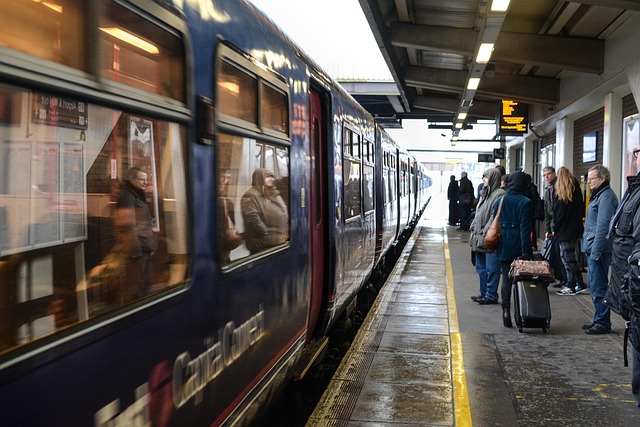Managing Delays: Rights, Compensation, and Rebooking Steps
Delays are a common part of modern travel, affecting flights, trains, buses, and micromobility legs of a journey. This short overview outlines what travelers should expect when plans change, including immediate practical steps, key documents to keep handy, and the types of compensation or rebooking options typically available across carriers and local services.

Delays can disrupt plans from the first booking to the final commute, but knowing your rights and practical next steps reduces stress. Keep your itinerary, booking confirmations, boarding passes, and any receipts accessible — both digital and printed copies help. When a delay occurs, document times, announcements, and communications from the carrier; that record supports claims for compensation or reimbursement and speeds rebooking. Understanding basic rules around security, visa checks, and transit requirements in your destination can prevent compounding problems during long waits.
How do delays affect your itinerary?
Delays can cascade through connections and accommodations. If you have a tight layover or onward transit, contact the airline, rail operator, or rideshare service as soon as a delay is announced to confirm options. For multi-leg journeys, flexible bookings or travel insurance that covers missed connections can preserve portions of your itinerary or allow refunds for unused segments. Keep visa documents and passport details handy—if a delayed arrival affects visa validity windows, contacting consular services or local immigration ahead of time helps. Note that some carriers will assist with re-routing when the delay is their responsibility; others may only offer limited support.
What mobility and transit options can reduce impact?
Consider alternate mobility choices to bridge gaps caused by delays. In urban areas, transit, rideshare, and micromobility (e-scooters or bike shares) can shorten last-mile commutes when scheduled services are disrupted. Where possible, estimate local transit time versus waiting for a delayed service and weigh costs and accessibility needs. Sustainability-minded travelers may prefer shared transit or micromobility options to minimize environmental impact, while those with luggage or limited mobility should prioritize services that accommodate larger bags and accessibility needs to avoid safety or comfort issues.
When might airfare compensation apply?
Compensation rules vary by jurisdiction and carrier. In many regions, passenger rights cover significant delays or cancellations originating with the carrier, but rules differ for international versus domestic routes and for codeshare flights. Compensation can be monetary, vouchers, or rebooking on another carrier, and may depend on delay length, distance, and reason. Keep announcements and written notifications from the airline as evidence. If a delay stems from extraordinary circumstances (extreme weather, air traffic control directives), carriers may not be required to pay compensation but are often expected to offer care (meals, accommodation) depending on the situation.
How should you handle booking and rebooking steps?
Start by reviewing your booking confirmation and the carrier’s contract of carriage or terms of service to understand automatic rebooking policies. Contact the carrier by phone, app, or customer service desk; note all reference numbers and names. If rebooking through an online platform or travel agent, they may have separate procedures. For disrupted hotel or car reservations, notify those providers promptly to request flexible changes or credits. If you opt to purchase alternate transport, keep receipts. Many carriers require proof for reimbursement claims, and travel insurance can cover additional booking costs when policies include missed-connection protections.
What can you do during a layover or extended wait?
Use the time to confirm onward arrangements and manage essential needs: charge devices, secure luggage, and check security and boarding requirements for public transit or flights. Airport and station lounges or local transit service desks can provide updates. For long waits, seek accommodations that consider accessibility and luggage storage; some transit hubs offer short-term baggage services. If you must commute into a city due to a prolonged delay, research local transit passes, rideshare options, or shuttle services in your area. Keep receipts for meals, transport, and accommodation if you plan to file a compensation or insurance claim.
How are accessibility, luggage, and security handled during delays?
Travelers with accessibility needs should notify carriers and service providers as early as possible; many airlines and transit agencies offer priority rebooking or special assistance during disruptions. Verify how your luggage is tagged and whether carriers will transfer bags to new flights or require you to reclaim and recheck them—this affects boarding and transit planning. Maintain copies of security or veterinary documentation if you travel with restricted items or service animals. If a delay requires overnight stays, ask about accessible rooms and transportation; carriers and local services are often required to accommodate documented needs.
Delays will remain part of travel, but preparation and informed responses reduce their consequences. Keep clear records, understand the terms tied to your bookings and any insurance you hold, and use local mobility and transit options to maintain momentum when appropriate. Document communications and expenses to support compensation or reimbursement claims, and prioritize accessibility and security requirements to protect personal needs and belongings.






